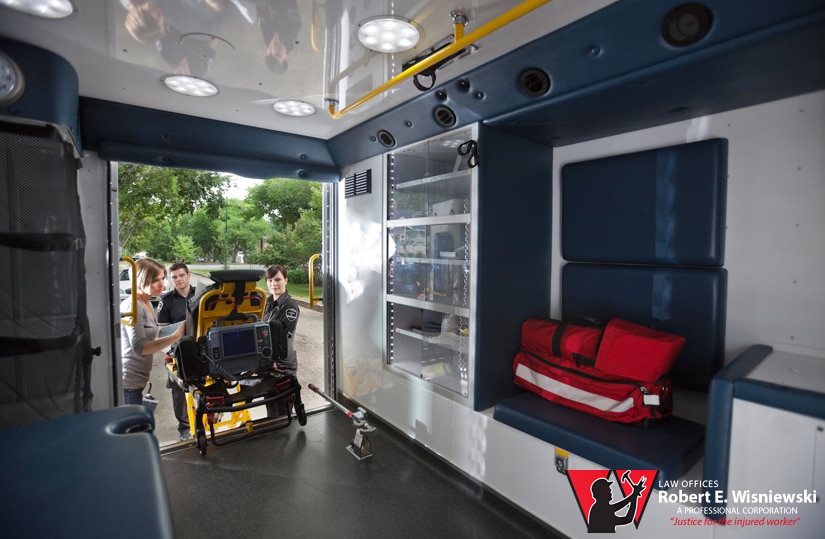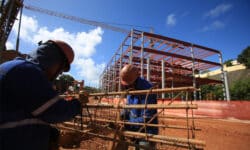Can you get workers’ compensation death benefits for a loved one who died on the job?
As grieving families and spouses process their loss and grief, it may be difficult to consider anything else—particularly their financial situation. However, it’s vital that surviving spouses, dependents and families do not delay in seeking workers’ compensation death benefits, as entitled to them under Arizona law.
Each year, insurance companies pay an average of $70 billion in expenses for workplace injury claims. In some cases, a workplace accident may cause an injured employee’s death. Slips, trips and falls are among the most common workplace fatalities. Other injuries occur when employees lift heavy items or while operating vehicles and other heavy machinery.
If an injury occurs while a worker is on the job, Arizona workers’ compensation insurance pays benefits to cover medical bills, funeral expenses and lost wages that arise as a result.
Here are some of the common causes of work-related fatalities in Arizona. If you’re hurt on the job, reach out to our team at the Law Offices of Robert E. Wisniewski today.

Slips, trips, and falls in the workplace
A worker may slip or fall in the workplace due to a variety of circumstances. While falls are typically not fatal, there are instances in which a fall may result in a worker’s death. Construction workers, for instance, are frequently required to perform work on buildings, which can be even more dangerous if there is an issue with the safety protocols.
In less dangerous professions, workers may fall downstairs and on slick surfaces. Workers who are older are especially susceptible to falls as well as to complications from a fall.
Heavy equipment accidents
Heavy equipment always poses an elevated risk in the workplace. Forklifts, automobiles, trucks and factory machines are sometimes involved in fatal workplace injuries. A worker may lack proper training, or they may experience fatigue while operating a vehicle or a potentially dangerous heavy machine.
In other cases, heavy equipment may malfunction and cause injury. If your family member sustained a fatal injury while working with heavy equipment, our Arizona attorneys can help you take the necessary steps to receive a workers’ comp settlement after death.
Auto accidents
Arizona is an at-fault state when it comes to car accidents, meaning that liability for a collision is usually determined by the police officer—at least at first, before insurance adjusters and lawyers get involved. However, Arizona’s workers’ compensation law is a no-fault system, meaning you can still receive workers’ compensation benefits even if you caused the car accident (so long as you didn’t intentionally cause the accident).
In 2013 alone, work-related crashes cost employers $25 billion. In 2017, 47% of pedestrian worker fatalities occurred in just a few occupations: heavy and tractor-trailer truck drivers, construction (trades workers, laborers and highway maintenance), and grounds maintenance workers.
From 2003-2017, more than 27,000 workers in the U.S. died in a work-related motor vehicle crash.
If your loved one died due to a car accident while working, you may be entitled to benefits.
Understanding benefits for family members under Arizona workers’ comp laws
Spousal benefits:
- If no dependent children: 66.67% of the late spouse’s income, if the accident victim had no dependent children.
- If there are dependent children: 35% of the deceased worker’s income.
- If the surviving spouse remarries: The surviving children receive the 35% initially allocated to the surviving spouse and two-thirds of the average monthly wage until they are 18, finish education at 22 or benefits would continue if they are incapable of self-support until they are able to support themselves.
Children and stepchildren:
- Receive benefits until age 22 if enrolled full-time in school. Children and stepchildren who are not full-time students may only receive benefits until age 18.
- If under 18 and with a surviving spouse: Receive 2/3 of the deceased worker’s average monthly wage until they are 18 years of age, finish education at 22 or benefits would continue if they are incapable of self-support until they are able to support themselves.
- If there is no surviving spouse: Receive two-thirds of the deceased worker’s average monthly wage, divided equally, until they are 18, 22 if in school, or if over 18 and incapable of self-support, until they are capable of self-support.
Dependent parents:
- If wholly dependent: Both parents may receive 40% together, or one parent may receive 40% if only one is financially dependent.
- If there’s a parent but no surviving spouse or child under 18, and the parent was wholly dependent upon the deceased employee: 25% of the average monthly wage goes to the parent.
- If 2 parents survive and are equally dependent: They receive 15% each.
- If 2 dependent parents survive and neither is wholly dependent, but one or both are partially dependent: They receive 15% divided between them.
Can siblings of the deceased receive death benefits?
In Arizona, there is a provision for brothers and sisters under the age of 18. If there is no surviving husband or wife, dependent children under 18 or dependent parents, then siblings can receive 25 percent of the deceased’s average monthly wage if they were wholly dependent upon the deceased.
If there’s more than 1 brother and sister, wholly dependent, 35 percent of the average monthly wage is shared between the surviving siblings.
If there is partial dependency, the brothers and sisters can receive 15 percent to divide amongst the dependents.
There is also a provision in Arizona law that if the dependents are partially dependent, the monthly benefits can be “prorata.”
What if a dependent dies before receiving all of the death benefits?
Lastly, in the event of the death of a dependent before the expiration of the time determined in the award, the funeral expenses of that person—not to exceed $800—shall be paid.
Please note that these rates are subject to the specific terms and conditions outlined in the Arizona workers’ compensation laws, and it’s advisable to consult with a professional for individual cases.
When to consult an Arizona workers’ comp attorney
As you can see from the mathematical and legal computations above, calculating and distributing death benefits following a workplace fatality in Arizona is somewhat complicated. This confusion is made even more difficult for spouses, children and families who are grappling with the loss of their loved one.
At the Law Offices of Robert E. Wisniewski, we understand the complexities of Arizona’s workers’ comp laws. No matter your family dynamic, we will gather all the facts of your loved one’s case and fight for your rights to the compensation you deserve.


